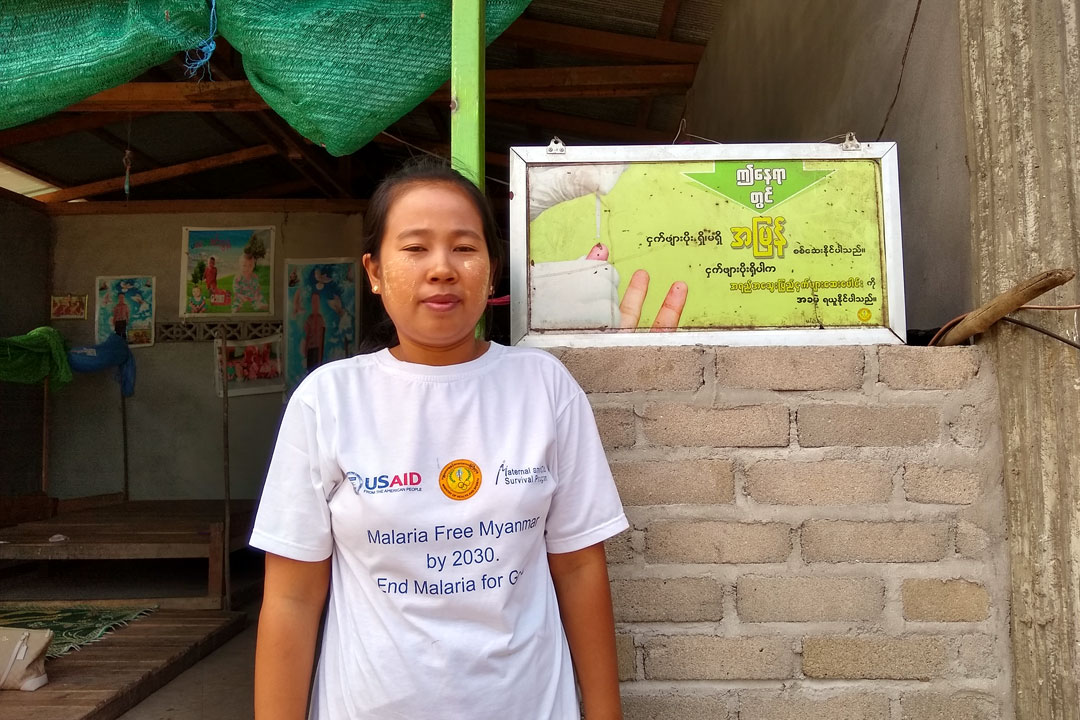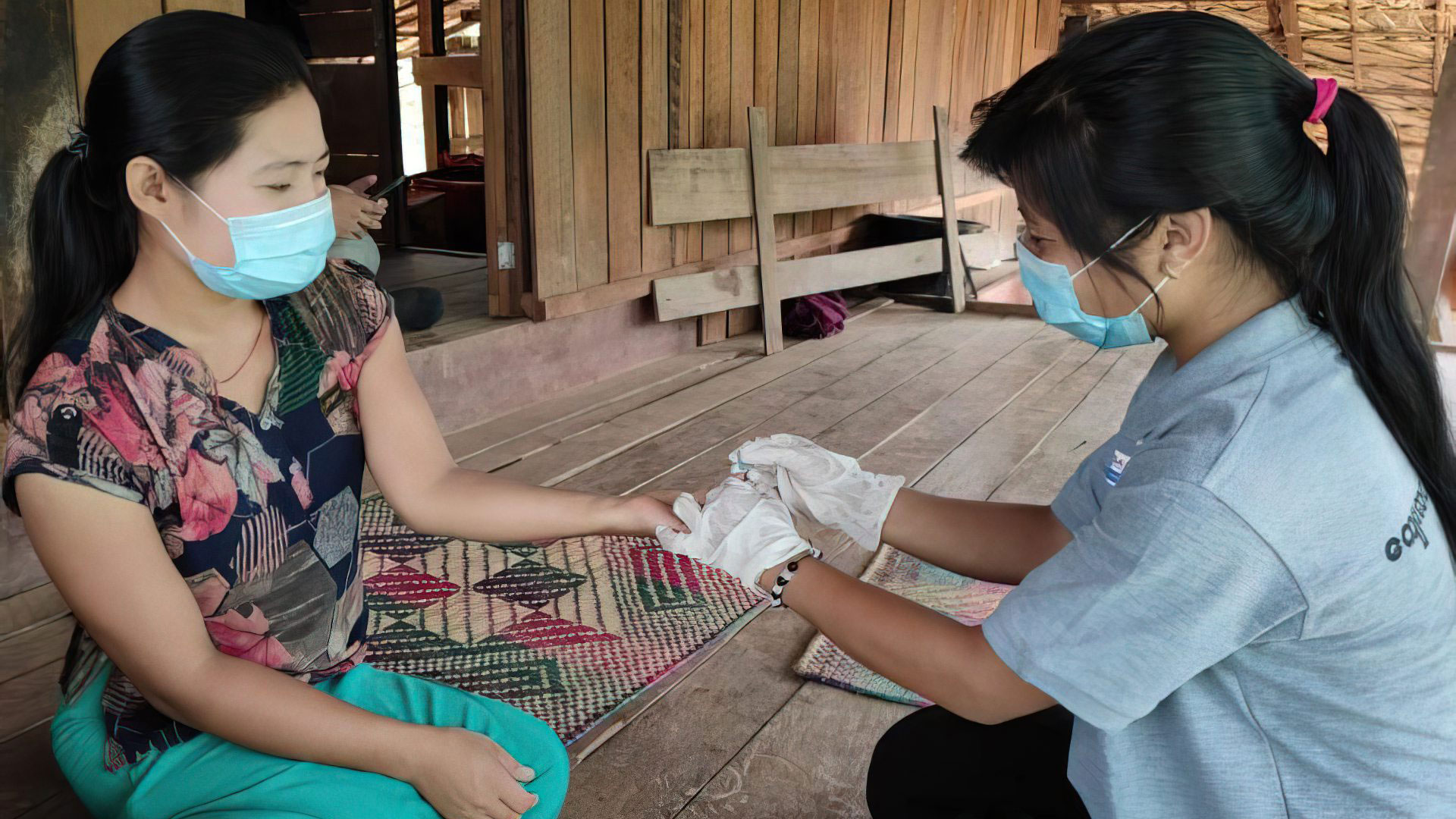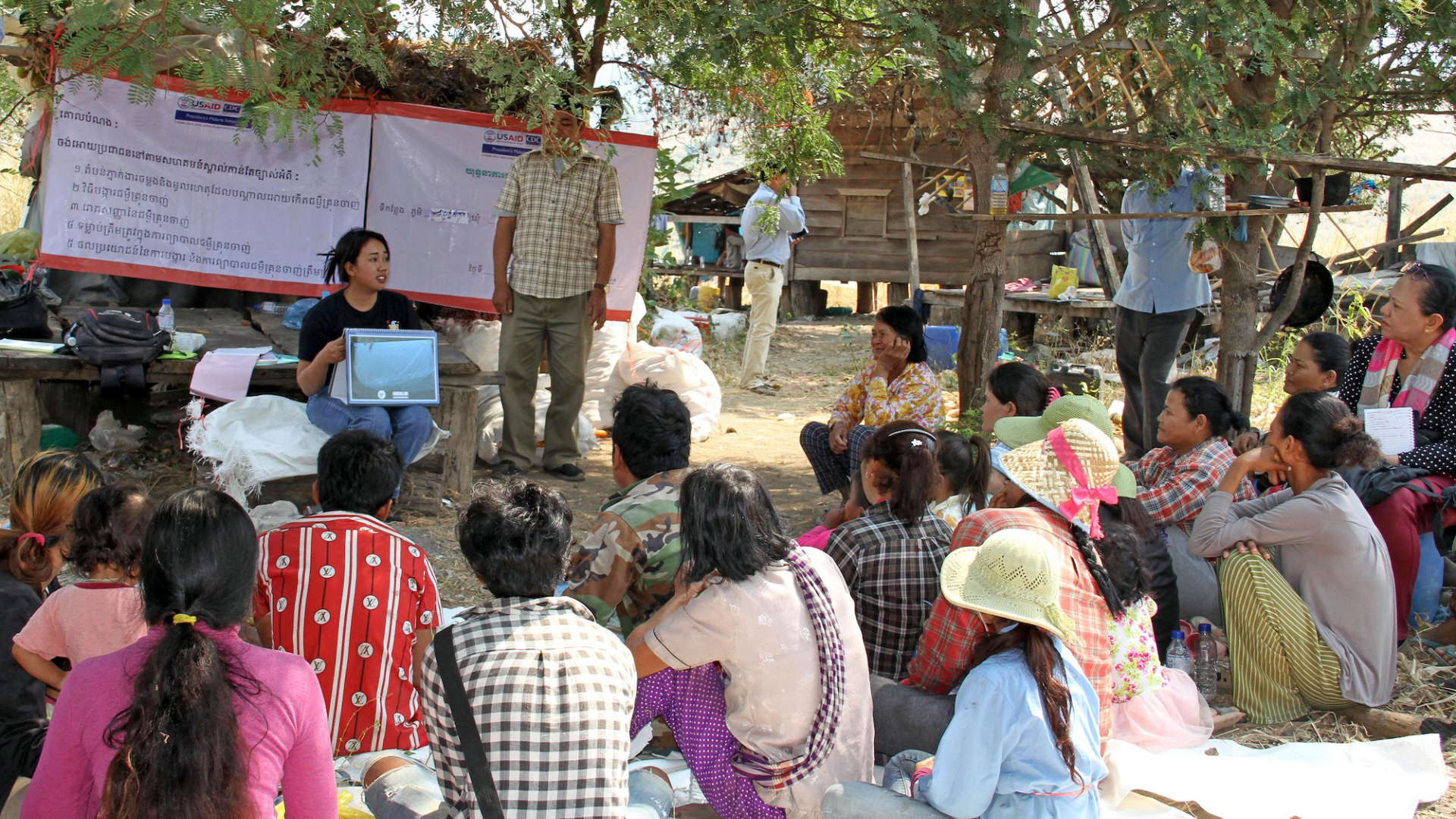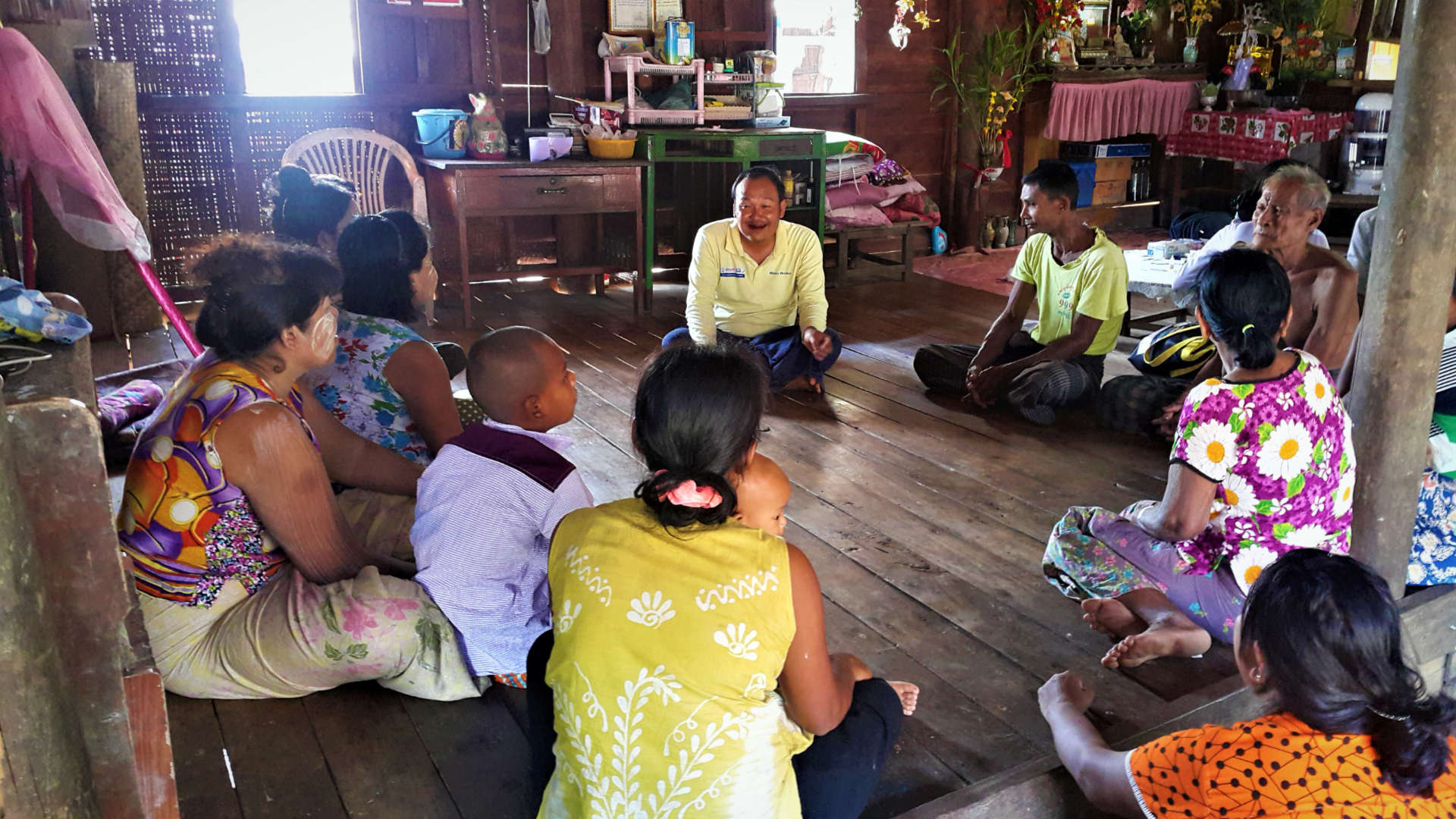In 2006, when Zar Zar Mon was a high school student, she and her family moved to Me-Wa-Khi Village in Myawaddy Township. At the time, malaria was very common in the village, she said.
“All of us suffered from it,” said Mon. “I was even infected five times in one year. Malaria attacked all my family members, including my mother, father, brothers, and nephews. It was a hard time for us.”
That motivated Mon, 32, to become a village malaria worker eight years ago. Since then, she’s been delivering community-based malaria prevention and case management services, including health education – among other assistance – to her village.
“I wish Me-Wa-Khi Village to be free from malaria,” Mon said.
She may soon get her wish. The village hasn’t had a positive malaria cases since February 2020. Myanmar is working toward eliminating malaria entirely by 2030.
Supporting Malaria Eradication at the Community Level
The USAID/PMI-funded Defeat Malaria Activity, which began in 2016, is supporting malaria elimination efforts by Myanmar’s National Malaria Control Program (NMCP) and Ministry of Health and Sports. The goal? Eliminating malaria in all families, in all villages, in all townships in the country.
To move Myanmar closer to this goal, Defeat Malaria developed a capacity building strategy with a series of trainings for village malaria workers (VMWs). Upon completion of this training, VMWs were able to:
- Deliver essential community-based malaria services, including early diagnosis through quality-assured malaria rapid diagnostic tests and provide appropriate referrals;
- Raise health awareness and conduct community behavioral change communication;
- Ensure proper replenishment, storage, use, and disposal of drugs and tests; and
- Recording and reporting of performed activities.
The capacity building strategy also included a review and revision of the national-level malaria curriculum, provision of post-training follow-up, and supportive supervision and mentorship to ensure that health workers at all levels use and maintain the latest malaria diagnosis, treatment, and care knowledge and skills.
Village Malaria Workers Help Dramatically Lower Malaria Rates
Between 2007 and of December 2019, the NMCP trained 9,440 VMWs across the country and involved them in community-based malaria interventions. VMWs handle the key task of malaria case management in malaria high-risk areas.
Thanks in part to the hard work of the NMCP and the VMWs, malaria mortality declined by 95% and malaria morbidity decreased by 85% across the country between 2012 to 2018. Credit also is due to funding from USAID, the Global Fund, the Bill & Melinda Gates Foundation, the Japan International Cooperation Agency, and others.
As the burden of malaria decreased in the townships, the NMCP expanded VMWs’ role so they could address other diseases, including tuberculosis (TB), HIV, leprosy, filariasis, and dengue by training them to become integrated community malaria volunteers (ICMVs). ICMVs also provide diagnoses and referral services for people with these additional diseases.
Defeat Malaria supported the NMCP with ICMV trainings. Between August 2018 and September 2020, a total of 2,081 VMWs trained by Defeat Malaria successfully were elevated to be ICMVs. Additionally, Defeat Malaria has conducted more than 30 trainings and workshops to produce general trainers with updated technical knowledge on malaria prevention and control. These general trainers now are able to conduct cascade trainings effectively and efficiently, particularly for ICMVs such as Mon, who became an ICMW in 2017.
“As an ICMV volunteer, I have to collect data, prepare reports, and transfer patients to hospitals whenever necessary,” she said. “We do a finger-prick blood test for malaria, and I give medication if it is positive.”
As Me-Wa-Khi Village leadership also is very active in prevention activities, village health has improved compared to when Mon moved here, she said.
“It’s been two years since our village has been free from malaria with no deaths due to malaria,” Mon said. There are malaria cases in nearby villages, but Mon believes that “we will achieve to the goal of malaria elimination in Myanmar.”



